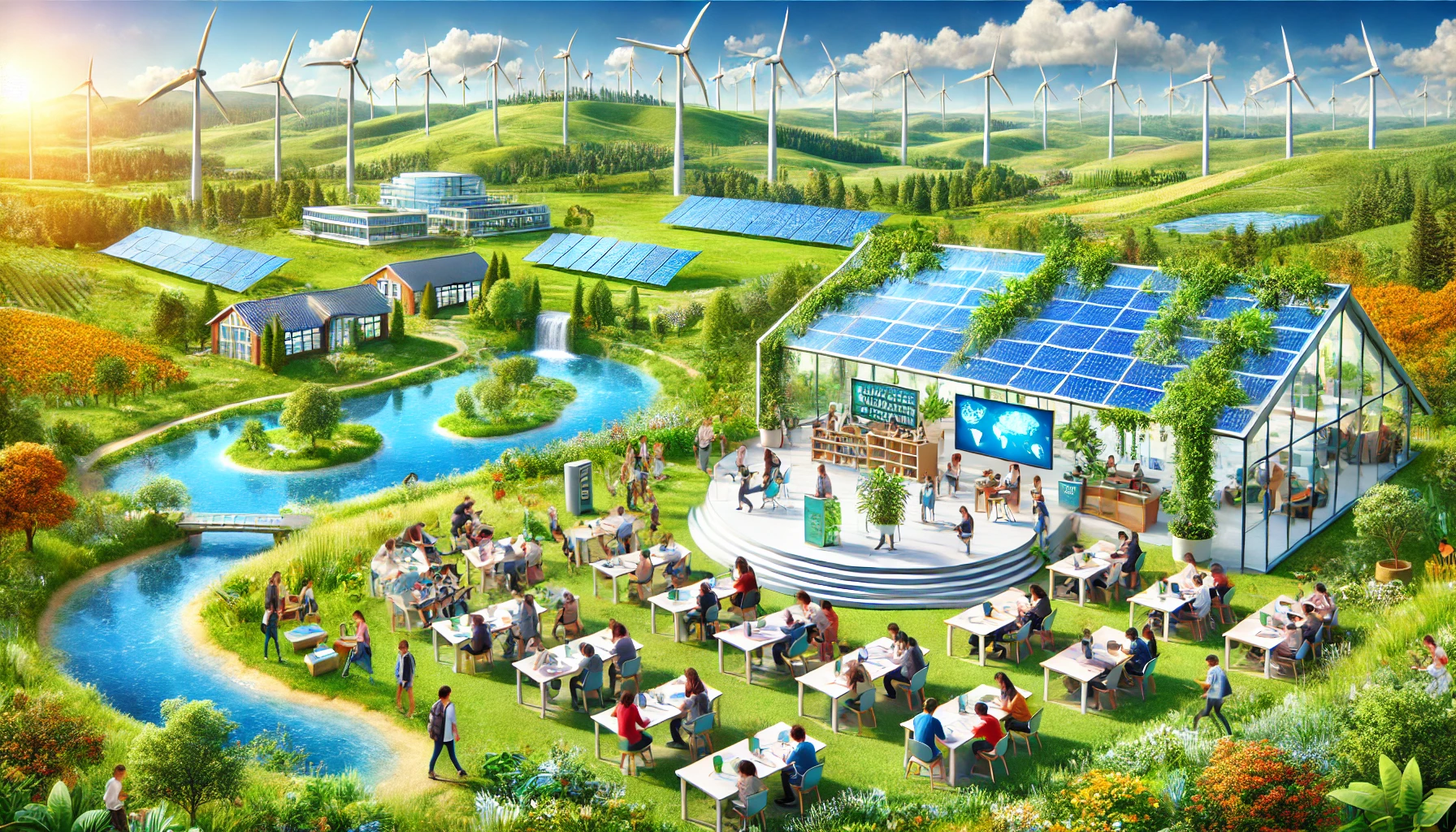ADB Report Urges Green Investments in Education to Tackle Climate Crisis and Boost Low-Carbon Economies
To support this vision, ADB announced a groundbreaking financing initiative in collaboration with the International Finance Facility for Education.

Governments across Asia and the Pacific must ramp up investments in education and training to foster climate literacy and green skills, essential for building climate-resilient economies, according to a new report by the Asian Development Bank (ADB).
The report, titled "Climate Change and Education Playbook," underscores a critical gap: while low-carbon economic growth demands skilled workers, many education systems and nationally determined contributions (NDCs) under the Paris Agreement are yet to align with the human development needs for this transition.
Challenges to Climate-Ready Education Systems
Globally, the demand for green jobs is growing faster than the supply of trained green workers. At the same time, climate change is taking a toll on education infrastructure and outcomes. In Asia:
India: Students exposed to prolonged storms experience a 7% decline in academic progress and an 8% reduction in household income over time.
Philippines: Extreme heat in 2022 caused 32 days of school closures.
Pakistan: The catastrophic floods of 2022 damaged 17,000 schools, affecting 2.6 million children.
ADB Sectors Group Director General Ramesh Subramaniam emphasized the urgency:“Making education systems climate-ready is a key policy agenda. We need action at every level—curriculum, infrastructure, and teacher education—to prepare students with the skills necessary for a green transition.”
Call to Action: Education for Climate Resilience
The report, unveiled alongside the Baku Initiative on Human Development for Climate Resilience at COP29, highlights several key policy priorities:
Transformative Climate Literacy: Equip children and youth with the knowledge to drive climate action.
Green Skills Training: Develop workforce competencies in transition industries like electric vehicles, renewable energy, and circular economy models.
Inclusivity in Climate Education: Incorporate education initiatives for women, marginalized communities, and disadvantaged youth into national climate strategies.
Resilient Infrastructure: Ensure schools can withstand extreme weather events to minimize disruptions.
“Reskilling will be key,” Subramaniam noted. “Nearly 8 million coal workers in Asia alone will require new training as coal industries phase out, while 230 million jobs could emerge in the region’s low-carbon economy by 2030.”
Green Skills Integration and Financing
ADB’s report stresses the importance of incorporating green competencies into occupational qualifications. High school, technical, and vocational education programs should align curricula with the demands of industries transitioning to environmentally sustainable practices.
In addition, all 4.7 billion citizens of Asia and the Pacific need foundational climate knowledge to participate in decarbonization efforts effectively.
To support this vision, ADB announced a groundbreaking financing initiative in collaboration with the International Finance Facility for Education. This sovereign-backed Swiss foundation will guarantee $125 million of ADB’s current loan portfolio, enabling the bank to mobilize an additional $500 million in concessional financing for education in lower-middle-income countries.
Education as a Pillar for Climate Action
Governments must incorporate green education strategies into their NDC updates under the Paris Agreement to strategically advance decarbonization goals. According to ADB, bolstering climate literacy, promoting green research and development, and fostering environmental awareness can enable countries to achieve both economic growth and sustainability.
“Education is more than a response to climate change—it’s a critical enabler,” Subramaniam emphasized. “With the right investments, we can unlock the potential of low-carbon economies and ensure that no one is left behind.”
The report offers a roadmap for aligning education systems with the region’s urgent climate and economic challenges, presenting a vision where green skills, infrastructure resilience, and inclusivity underpin sustainable development across Asia and the Pacific.
- READ MORE ON:
- Asian Development Bank
- education
- Climate Change










